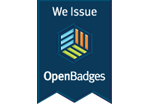Standard
| Attenzione: Pagina in costruzione |
Moodle è una piattaforma globale di gestione dell’apprendimento che supporta gli standard aperti ed è progettata per essere interoperabile e consentire l’integrazione di applicazioni e informazioni esterne su un’unica piattaforma.
Il nostro impegno per gli standard aperti significa che istituzioni e organizzazioni possono utilizzare Moodle a proprio vantaggio. È possibile personalizzare ed estendere le funzionalità per qualsiasi esigenza di insegnamento e apprendimento beneficiando di maggiori efficienze, in termini di costi, flessibilità e facilità di gestione, e vantaggi relativi a prestazioni e scalabilità.
Moodle ha raggiunto ed è conforme ai seguenti standard internazionali:
1. Un’iniziativa Open Source
Moodle is provided as a free, open source software that can be used, modified and freely distributed under the terms of the GNU General Public License. There are also plenty of documentation, course content and resources available on Moodle.org for anyone to use under the terms of various licenses, including:
- Moodle Documentation: All documentation on docs.moodle.org is openly licensed under the terms of the GNU General Public License, and is Copyright © 2005 onwards by the individual authors of each page.
- Moodle.net: All courses published on Moodle.net are published under Commons licenses.
2. Certificazione IMS LTI™
Moodle is certified Learning Tool Interoperability (LTI) v2.0 compliant. The LTI™ certification is a global technical standard of integrating learning applications. Users can integrate and present externally hosted applications and content within a single Moodle platform without having to develop and maintain custom integrations. Learn more about integrating LTI resources onto your Moodle platform. In Moodle 3.1 onwards, Moodle can also act as an LTI tool provider with the Publish as LTI tool.
3. Compatibilità con lo SCORM-ADL
Moodle complies with the SCORM 1.2 specification. The SCORM (Sharable Content Object Reference Model) is a set of specifications and standards for web-based e-learning. Users can deliver SCORM content via Moodle by uploading any SCORM or AICC package to the Moodle course. There are also community plugins available that provide limited support for the Experience API (Tin Can). A commercial plugin that provides full support for SCORM 2004 and the Experience API is also available in Plugins here.
4. Mozilla Open Badges
Mozilla’s Open Badges project is an online standard to recognise and verify learning using digital badges. Integrated as a core feature in Moodle, any institution, organisation or individual can create and issue badges to learners on their Moodle learning platform.
Moodle e l'interoperabilità
In supporting the seamless integration and use of content from different sources and multiple vendors, the Moodle platform is designed to exchange data using open industry standards for Web deployments, and supports:
- Autenticazione utilizzando:
- LDAP, the most widely-used standard protocol for authentication.
- Direct direct database lookup (e.g. in an external Oracle database), or on the Shibboleth protocol, or alternatively using IMAP, NNTP, CAS or FirstClass.
- Iscrizioni utilizzando:
- LDAP server (e.g. Active Directory)
- IMS Enterprise standard (via a downloadable plugin).
- Content using the import of Reusable Learning Objects, packaged according to the SCORM/AICC/IMS Content Packaging standards.
- Moodle 1.9.5 is certified SCORM 1.2 compliant.
- Moodle supports IMS Common Cartridge import and export
- The use of XML for content import/export (standard in Moodle). The "web services" method of exchanging data with other systems (e.g. via SOAP or XML-RPC) is not yet standard - but is in active development.
- Quiz questions via import and export using a variety of formats.
- RSS newsfeeds, integrated into a Moodle site or course.
- Forum discussions, glossary entries and database content can be accessed as RSS newsfeeds, and therefore integrated into other RSS-capable websites or systems.



